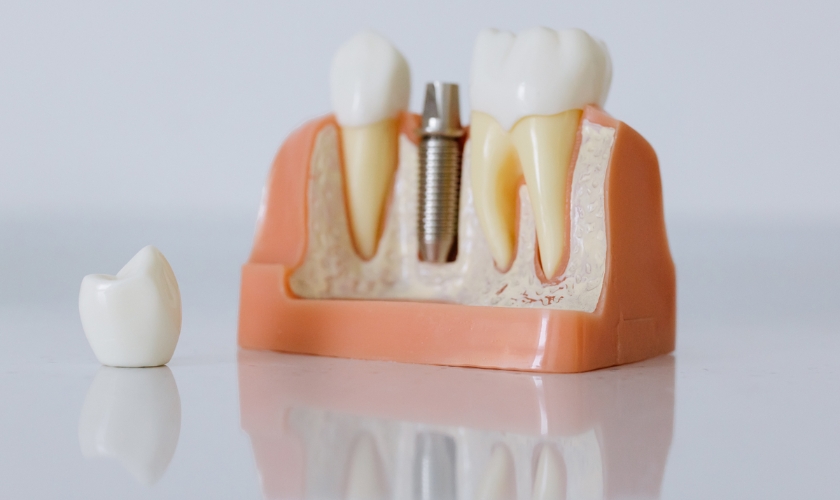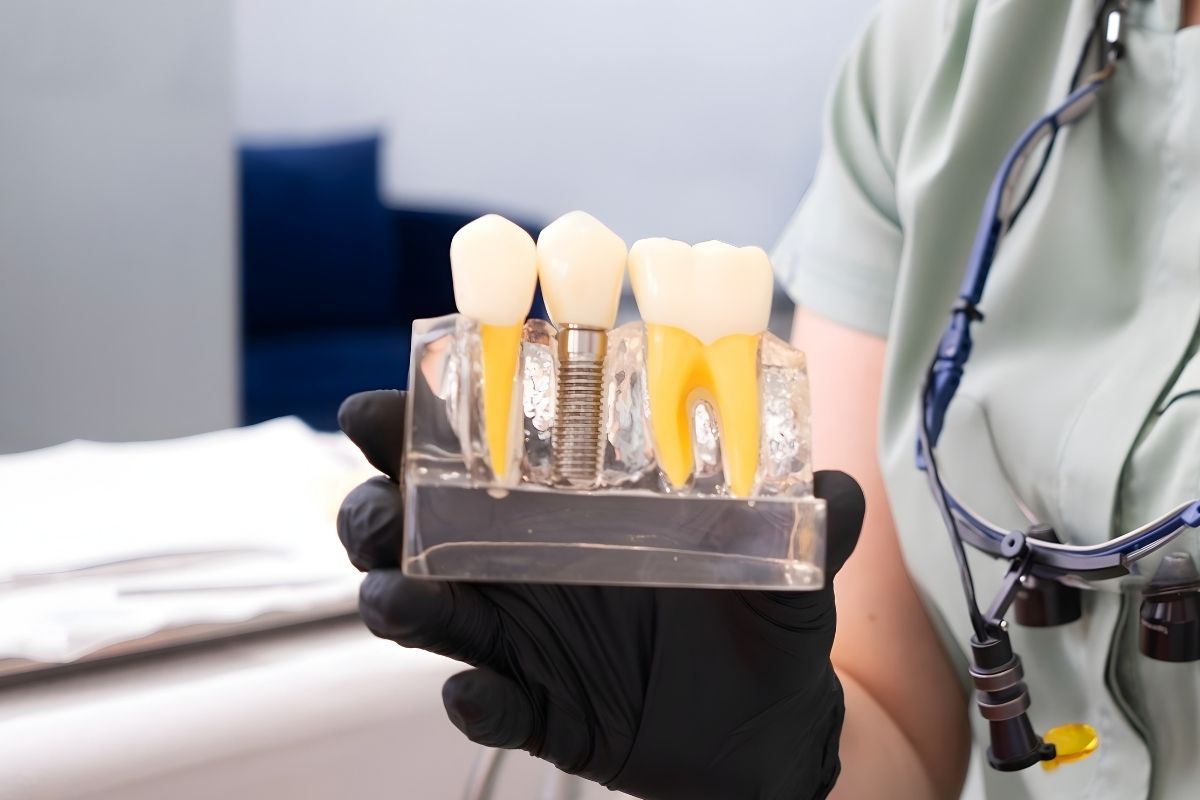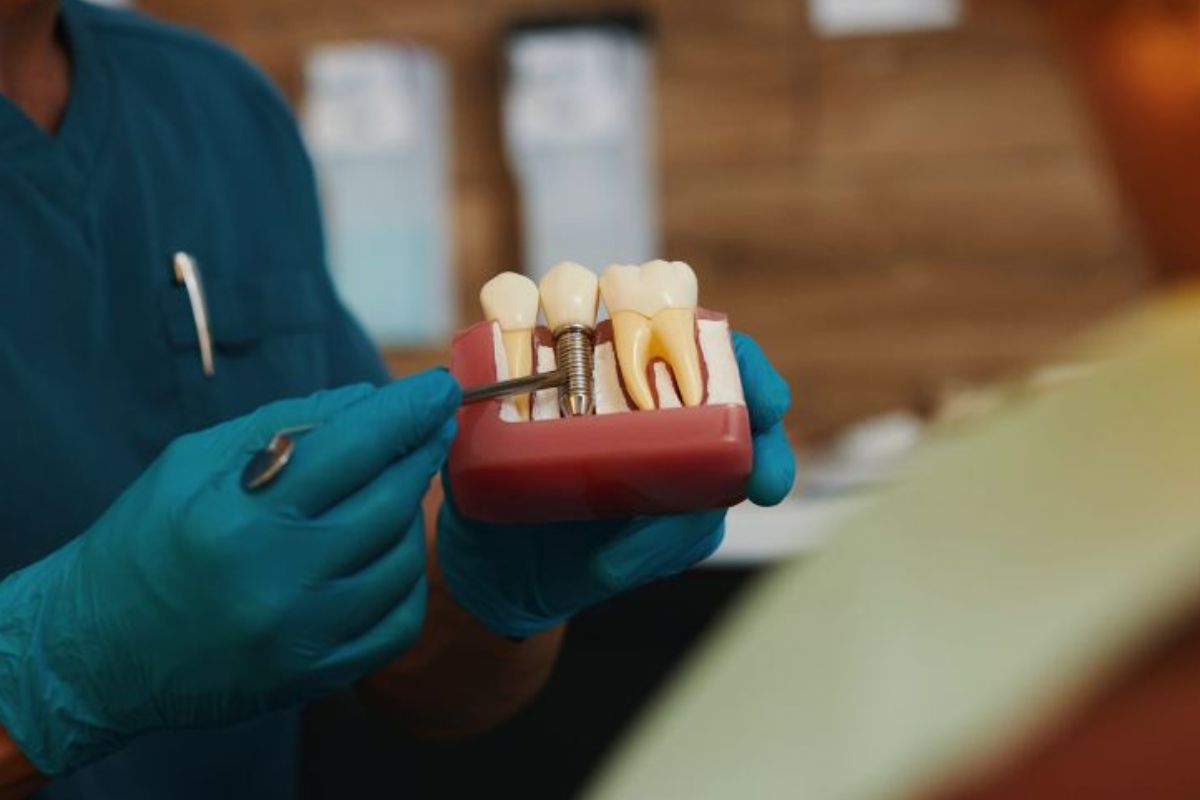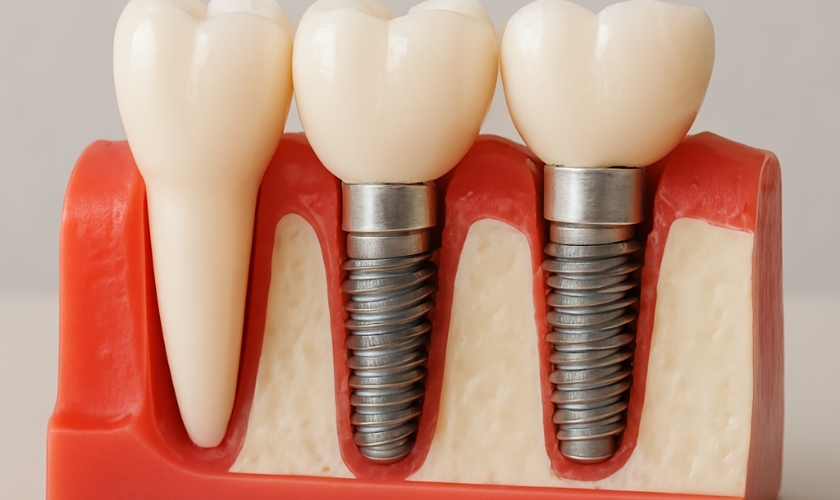Book An Appointment

Welcome to our comprehensive guide on dental implants! If you’re curious about this innovative tooth replacement solution, you’ve come to the right place. Whether you’re missing a single tooth or several, dental implants offer a long-lasting and natural-looking option for restoring your smile. In this blog post, we’ll explore everything you need to know about how dental implants work, their benefits, and answer some common questions along the way. So sit back, relax, and let’s dive into the fascinating world of dental implants!
What are Dental Implants?
Dental implants are a modern and effective way to replace missing teeth. Unlike dentures or bridges that rest on the gums or use nearby teeth for support, implants are surgically inserted into the jawbone. This process mimics the natural tooth root, offering a durable, long-term solution that enhances both appearance and function.
Osseointegration occurs when dental implants fuse with the jawbone over time using biocompatible materials such as titanium. This creates a strong foundation for replacement teeth such as crowns, bridges, or even full dentures.
One of the key benefits of dental implants is their ability to provide stability and functionality similar to natural teeth. They feel secure in your mouth and allow you to speak, eat, and smile with confidence. In fact, many patients often forget they have an implant at all!
Another advantage is that dental implants prevent bone loss in the jaw. Over time, the underlying bone deteriorates when a tooth is lost. Implants help stimulate bone growth and maintain its density.
The success rate of dental implant procedures is quite high when performed by experienced professionals. However, it’s important to note that not everyone may be suitable candidates for this treatment option due to certain health conditions or inadequate bone structure.
Dental implants offer an excellent long-term solution for individuals seeking durable tooth replacements that look and function just like real teeth.
Dental Implant Benefits
Dental implants have revolutionized the field of dentistry, offering a multitude of benefits to patients seeking a permanent solution for missing teeth. Its ability to restore both functionality and aesthetics is one of its most significant advantages.
Dental implants offer exceptional stability compared to dentures or bridges. Surgically placed into the jawbone, they gradually fuse with the bone, becoming a part of your natural structure. This integration creates a solid foundation for crowns or bridges, ensuring long-term support and functionality.
Another significant advantage of dental implants is their contribution to improved oral health. Unlike dental bridges, which require altering adjacent teeth, implants preserve neighboring teeth. This preservation helps maintain your overall oral health over time.
Furthermore, dental implants offer enhanced comfort and convenience compared to removable prosthetics such as dentures. With dental implants firmly anchored in place, there’s no worry about slippage or discomfort while eating or speaking.
Additionally, dental implants can help maintain facial structure and prevent bone loss that often occurs with missing teeth. This preservation of bone density ensures that your face retains its natural shape and prevents sagging or premature aging.
In terms of longevity, dental implants are incredibly durable when properly cared for. Unlike other tooth replacement options that may need frequent repair or replacement over time due to wear and tear, dental implants can last a lifetime with proper maintenance.
Dental implants have revolutionized tooth replacement in modern dentistry. The surgeon places titanium posts directly into the jawbone, creating a strong foundation for artificial teeth.
With their natural look and feel, dental implants offer numerous benefits that make them an excellent choice for those seeking a long-term solution to missing teeth.
One major advantage of dental implants is their durability. Unlike traditional dentures or bridges that may need periodic replacement, dental implants are designed to last a lifetime with proper care. They provide a long-term solution that integrates with the jawbone, offering durability and stability for optimal function and appearance. This means you can enjoy your new smile without worrying about constant maintenance or replacement costs.
Another significant benefit is improved oral health. Dental implants integrate with the jawbone, stimulating bone growth and preventing bone loss in areas where teeth are missing. This helps maintain facial structure and prevent sagging or premature aging.
Moreover, dental implants function just like natural teeth! They provide superior stability when eating and speaking compared to other tooth replacement options. You can confidently bite into your favorite foods without fear of slipping dentures or discomfort.
Furthermore, dental implant placement does not require altering adjacent healthy teeth as bridges do. This preserves the integrity of surrounding teeth and promotes better overall oral health.
Choosing dental implants is a life-changing decision that offers unmatched aesthetics, functionality, and longevity compared to other tooth replacement options. Consult with your dentist today to see if you’re a candidate for this remarkable treatment!
Remember: A beautiful smile starts with healthy teeth!
FAQ
3. Can anyone get dental implants?
Most people who are in good health and have enough bone density in their jaw can be candidates for dental implants. However, certain conditions like uncontrolled diabetes or heavy smoking may affect the success of the procedure.
4. How long does it take to get dental implants?
The timeline for getting dental implants varies depending on individual circumstances such as healing time and any necessary preparatory treatments like bone grafting. On average, it takes about three to six months from start to finish.
5. Will my insurance cover the cost of dental implants?
Insurance coverage for dental implant procedures varies widely among providers and policies. Some plans may cover a portion of the cost while others may not cover them at all. It’s best to check with your insurance provider beforehand to understand what is covered.
Remember that each person’s situation is unique, so it’s important to consult with a qualified dentist or oral surgeon who can evaluate your specific needs and provide personalized answers based on your individual circumstances.






